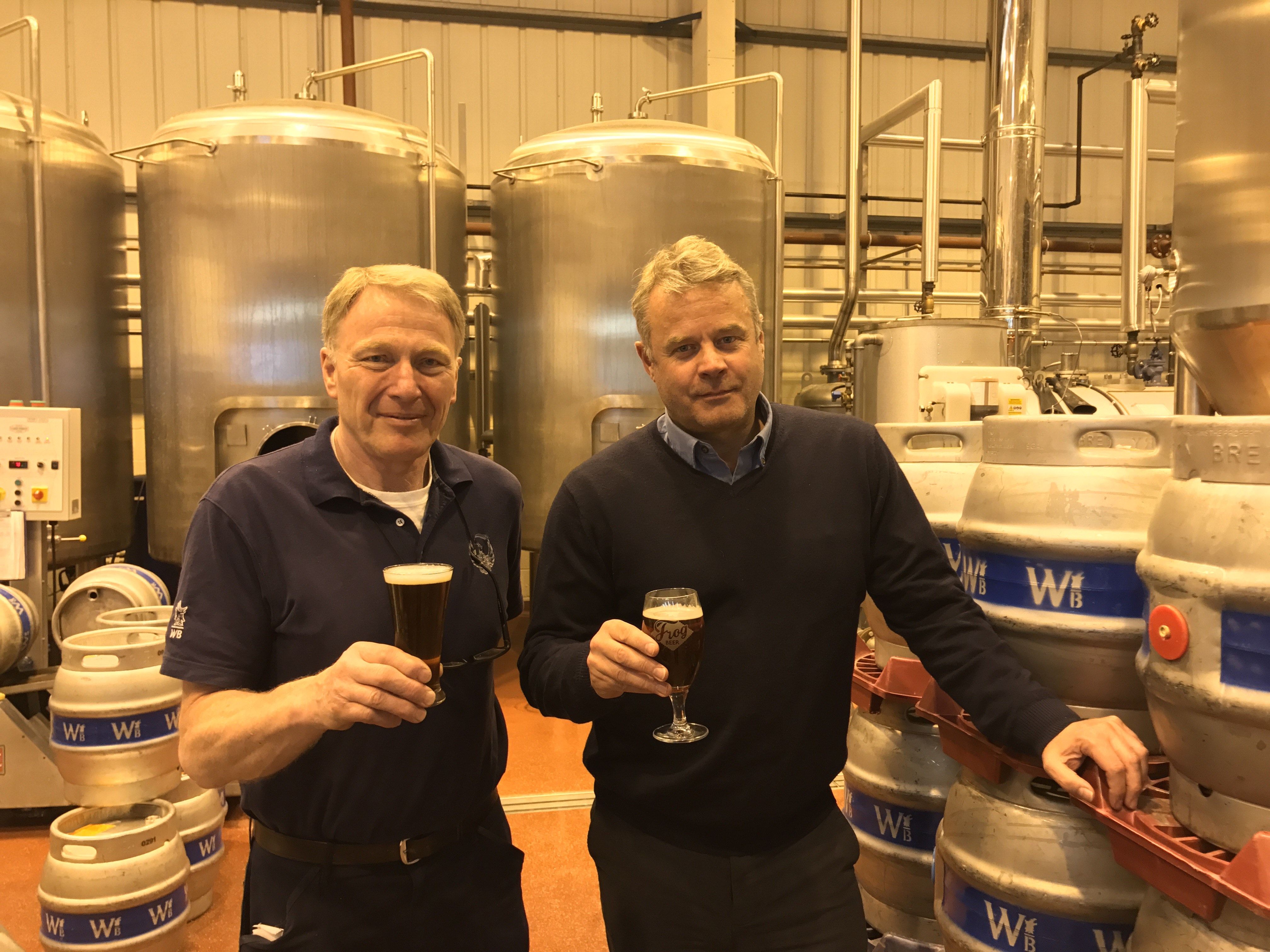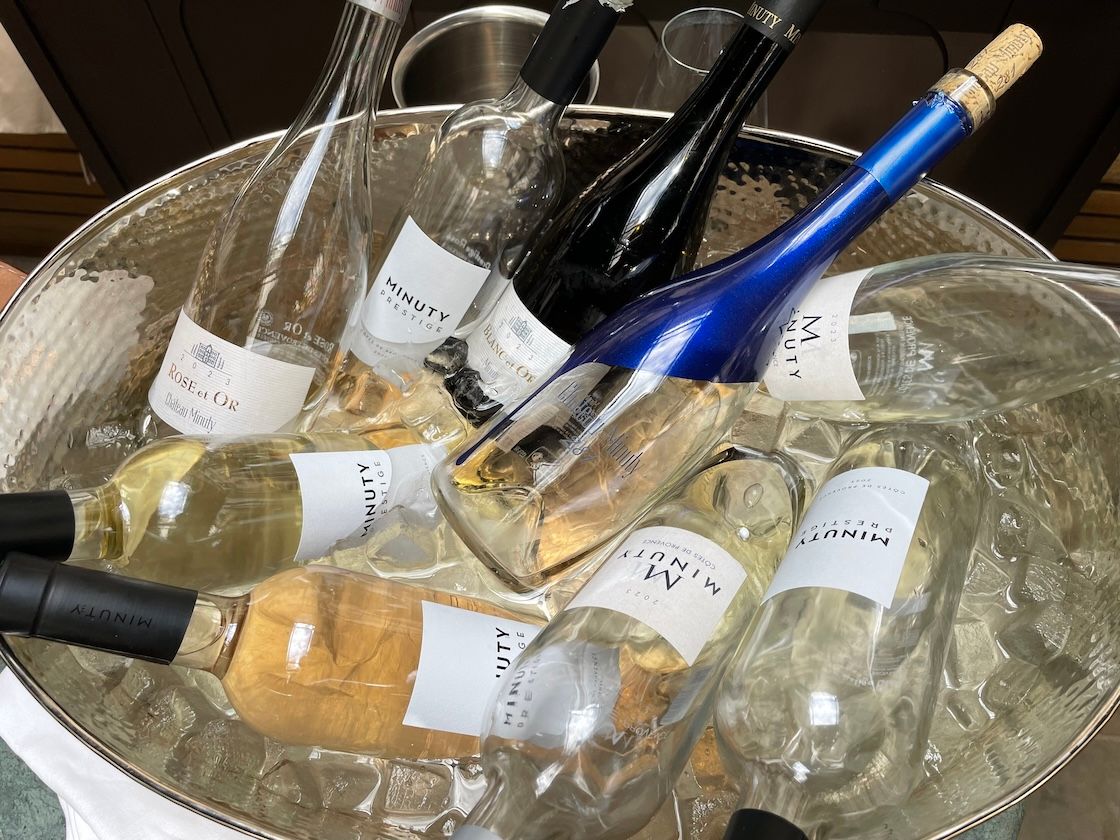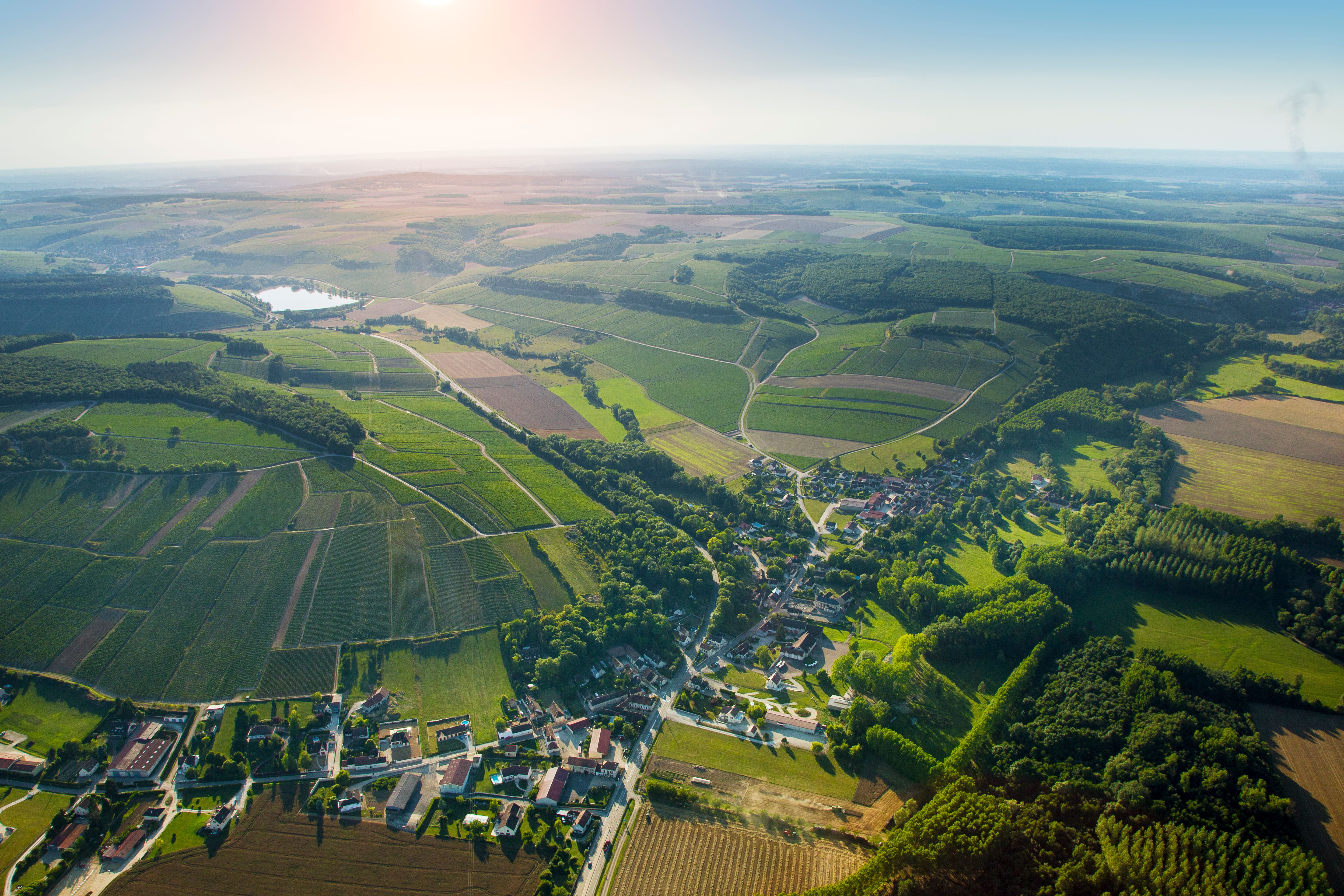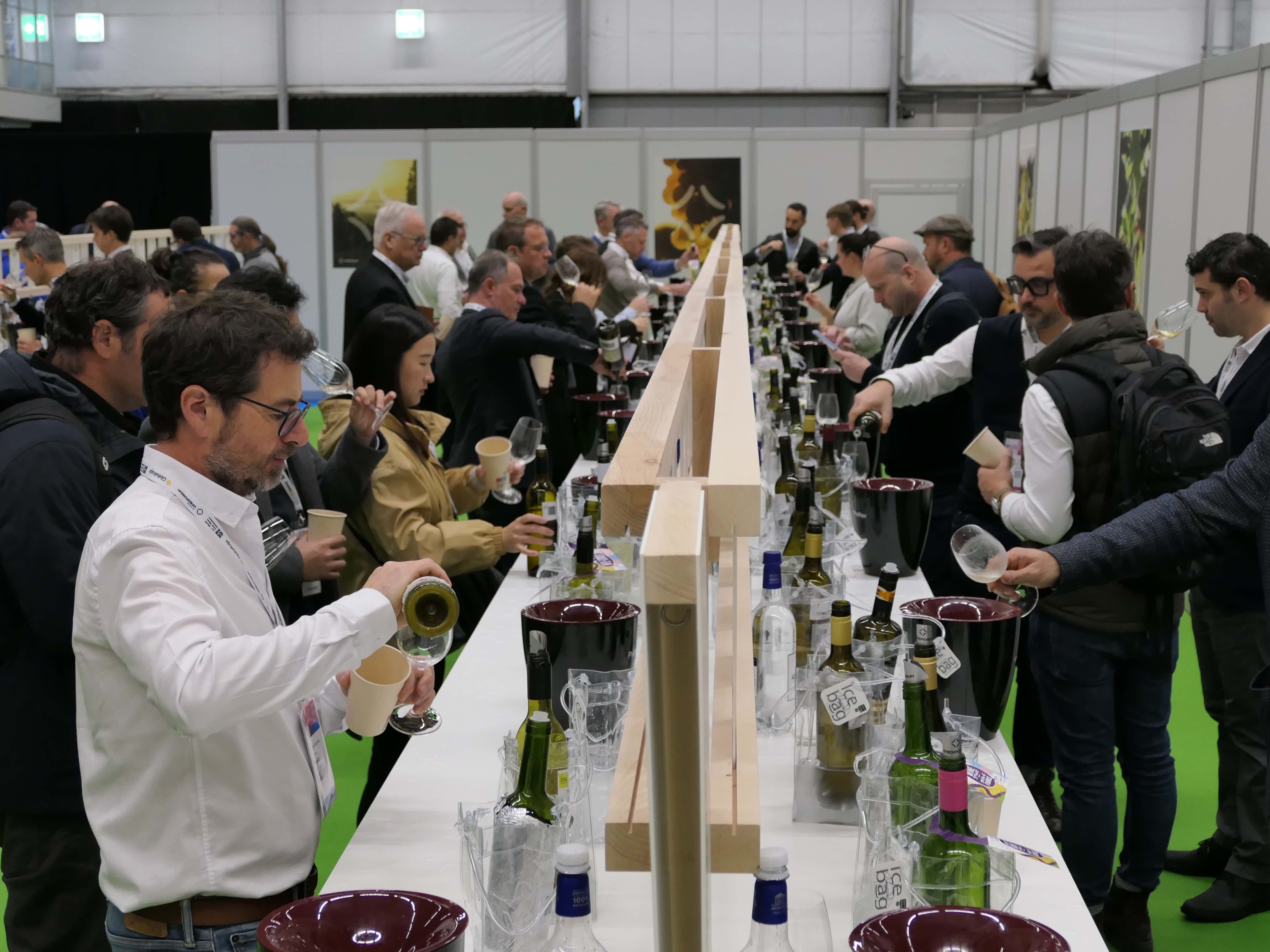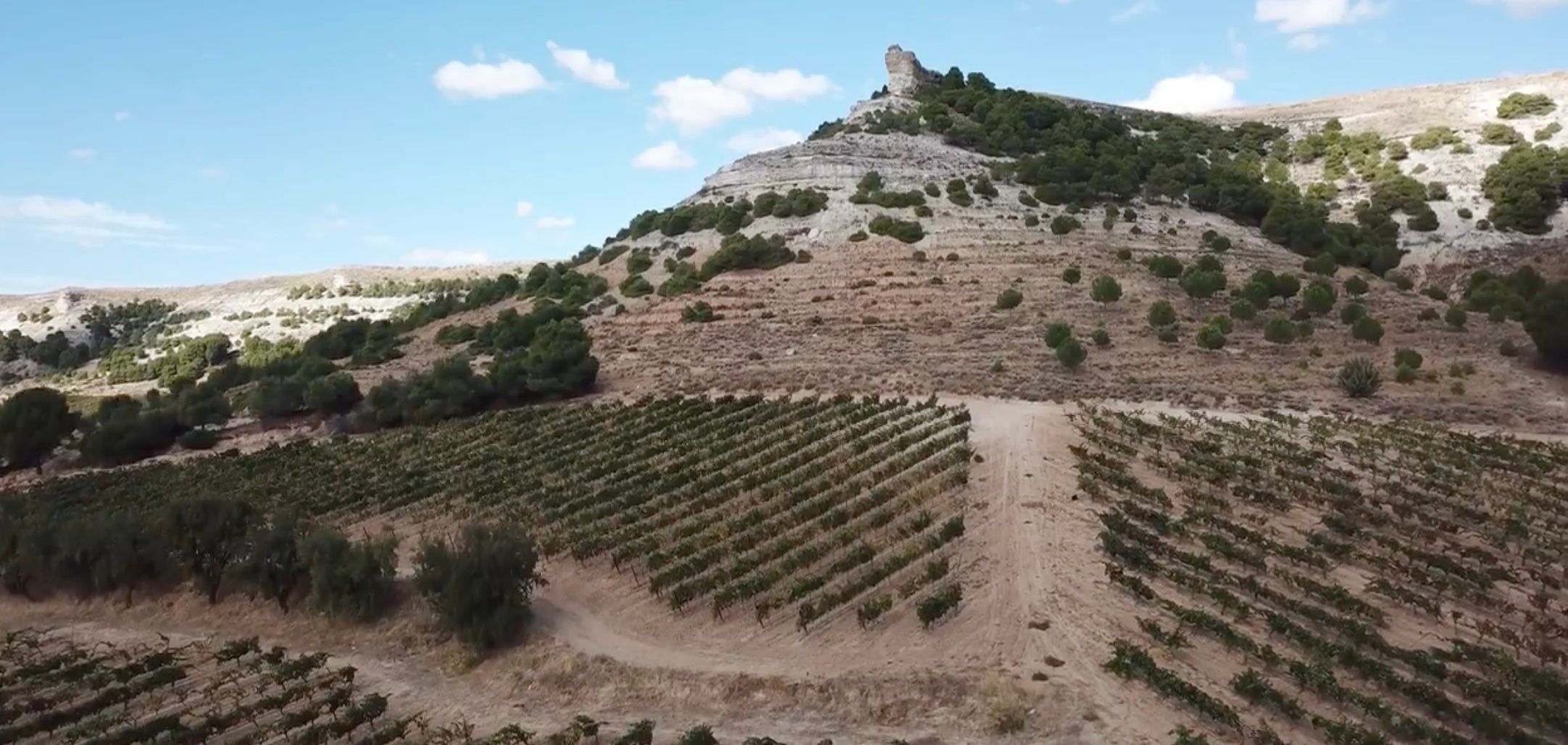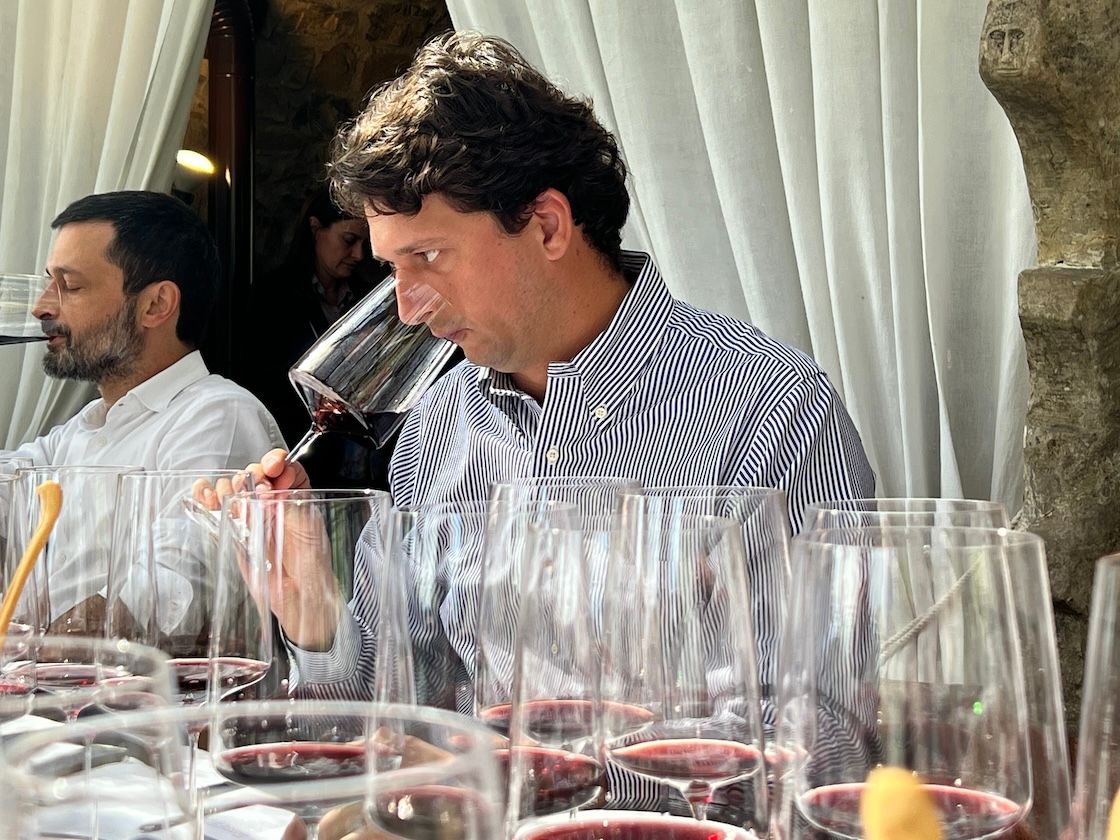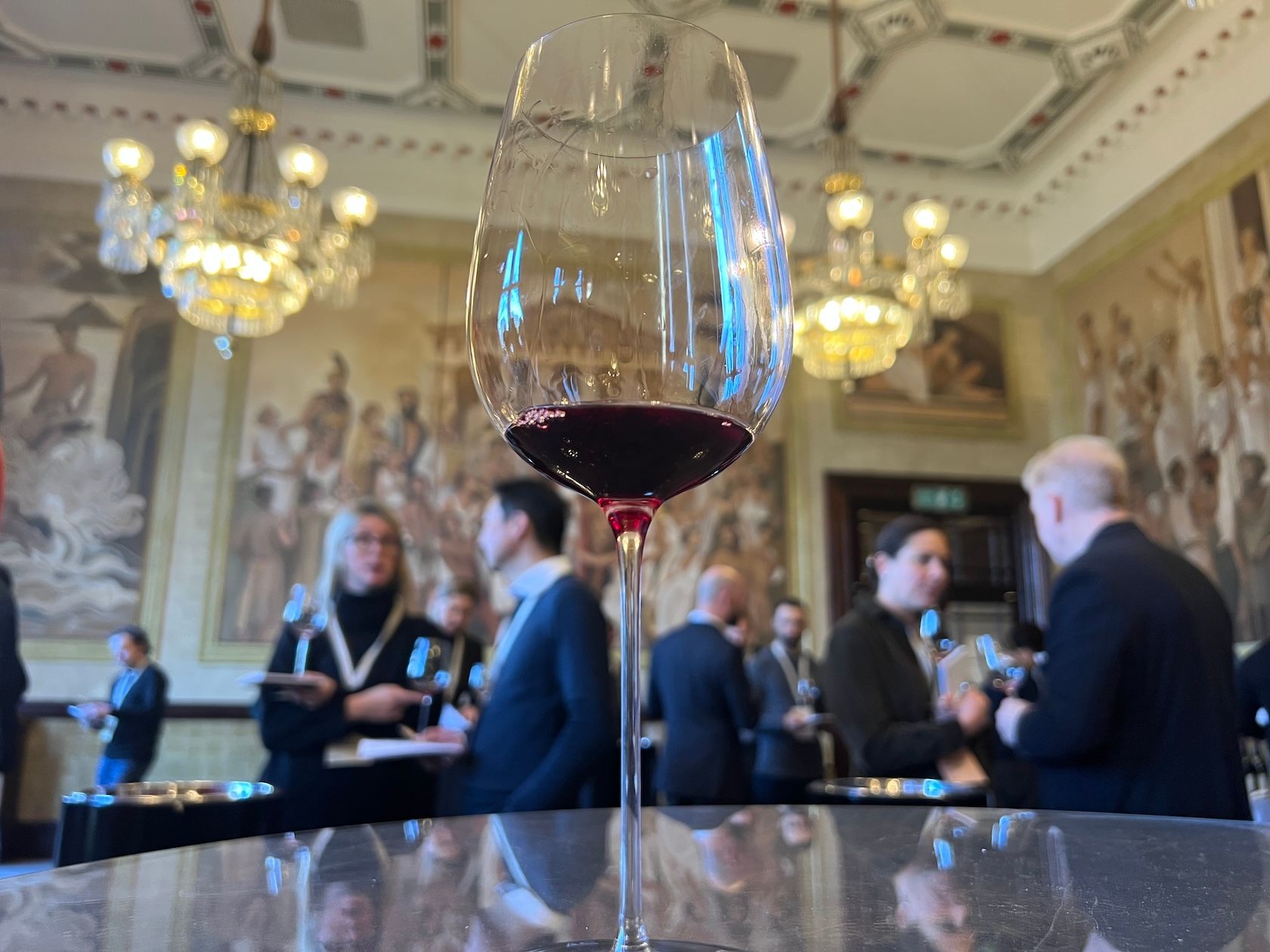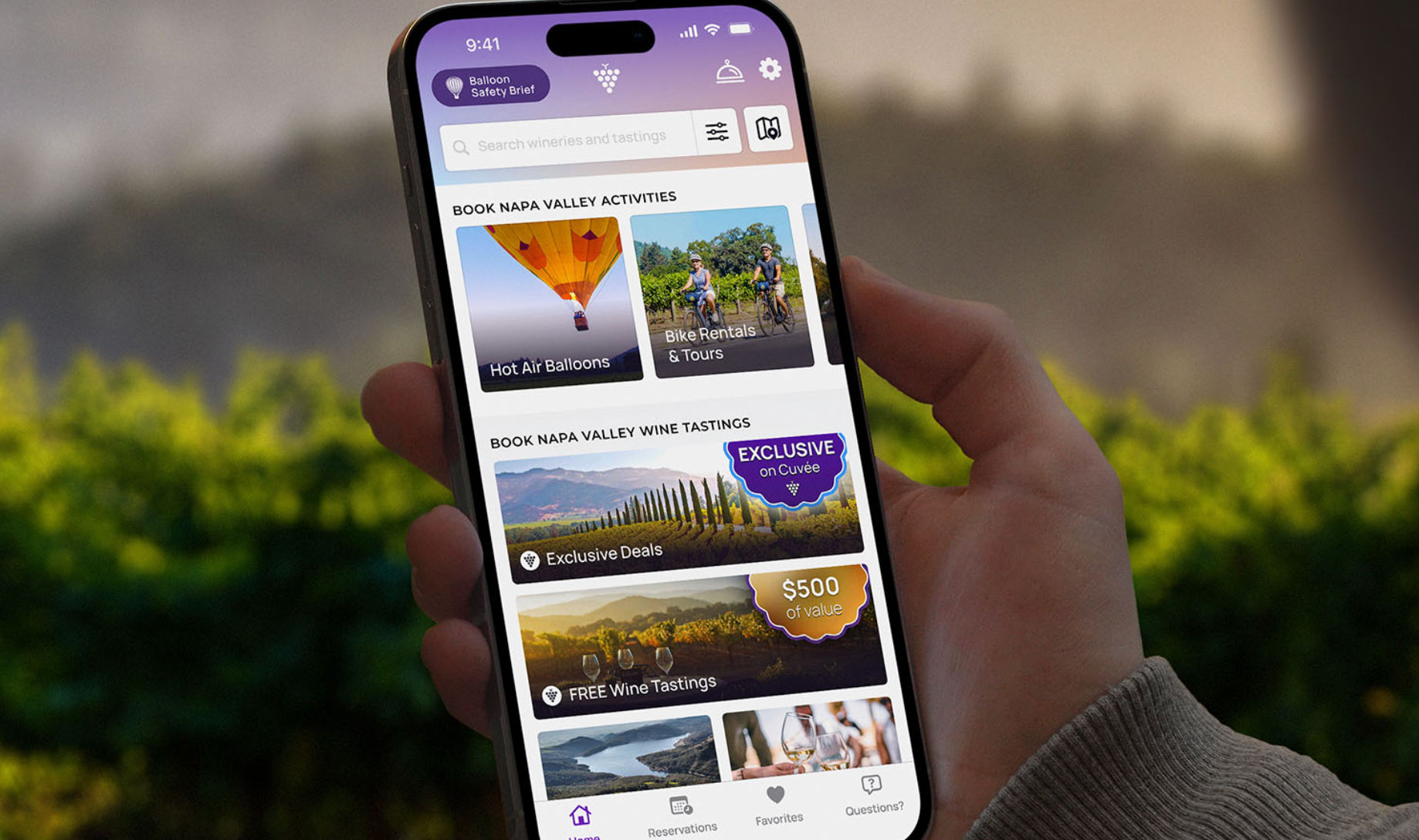Be it in bottle, keg or cask the Wimbledon Brewery believes it has the range of traditional beers, made using modern craft brewing techniques, to help give locally produced beers an international appeal.
It’s the middle of June and the time of year when we all start thinking about Wimbledon. Yes, a fortnight of balmy, hot, London summer weather, drama in to the night, BBC schedules being ripped up, and all ending on a long Sunday afternoon with Britain’s favourite Scot, Andy Murray, being crowned men’s singles champion.
The reality is normally very different from that, but we all start Wimbledon with those nostalgic memories of what the fortnight should be all about.
This is very much the image of Wimbledon, which is as relevant in Sydney, Hong Kong or Buenos Aires as it is in a sleepy village in England, that the founders of the Wimbledon Brewery were hoping to tap into when they thought about opening up their own craft beer business.
With craft brewers opening up all over the country every week it’s hard to get noticed, never mind start building a brand that is here to say.
Which is very much the goal of the Wimbledon Brewery and it believes it has the talent, as well as the name, to do so.
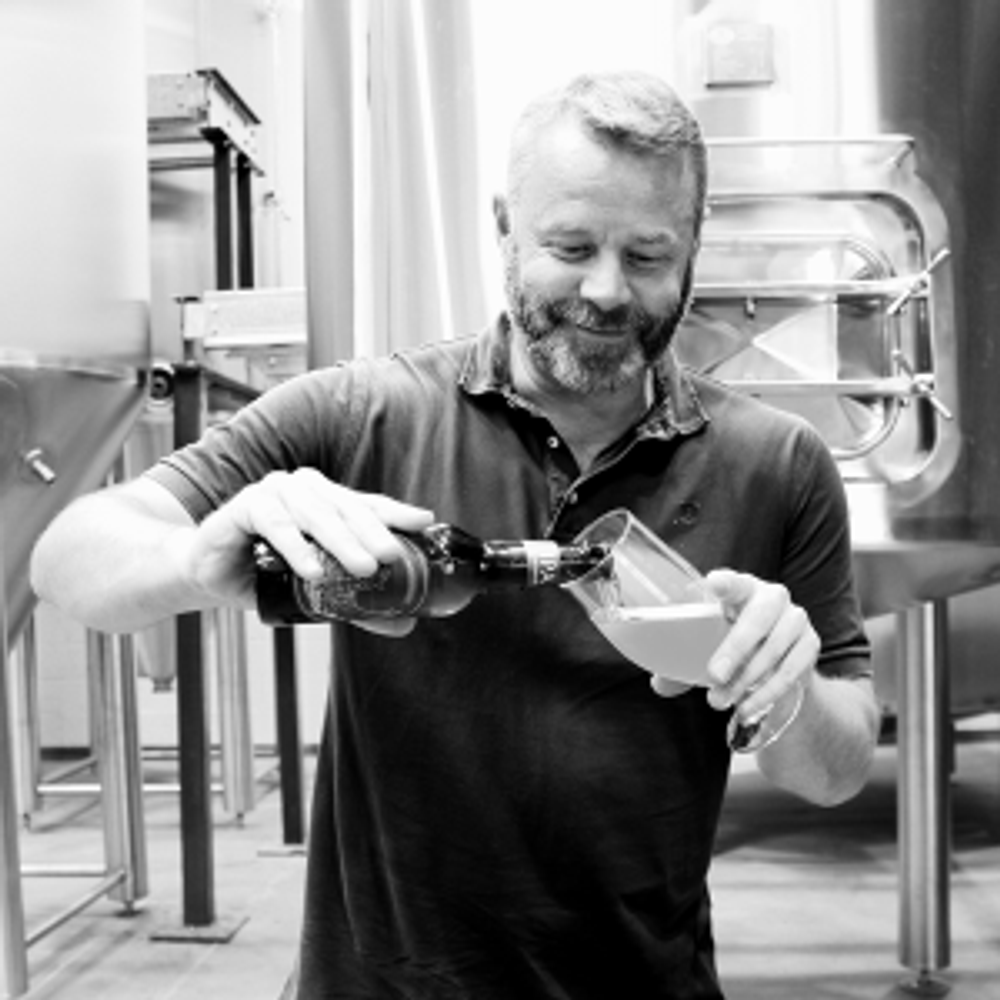
Mark Gordon quickly realised he needed the best master brewer he could find
“I spent about 10 minutes doing a brewing course before realising how hard it was and how I needed to get professional help,” says founder, Mark Gordon.
He also realised that you could have all the right branding and associations from where you come from, but ultimately it comes down to the quality of the beer, and who your master brewer is.
Which is why he was so keen we spend as much time on our visit with head of brewing, Derek Prentice, who he quite happily says is the real heartbeat of the business.
It is his skills, reputation and ability as a master brewer that has helped get Wimbledon Brewery’s foot in the door with so many customers, says Gordon.
Prentice really has been there and got the T shirt, be it from his time at the likes of Trumans and Youngs and most recently Fuller’s and has been in the brewing business since he left school at 17.
Mixed experience
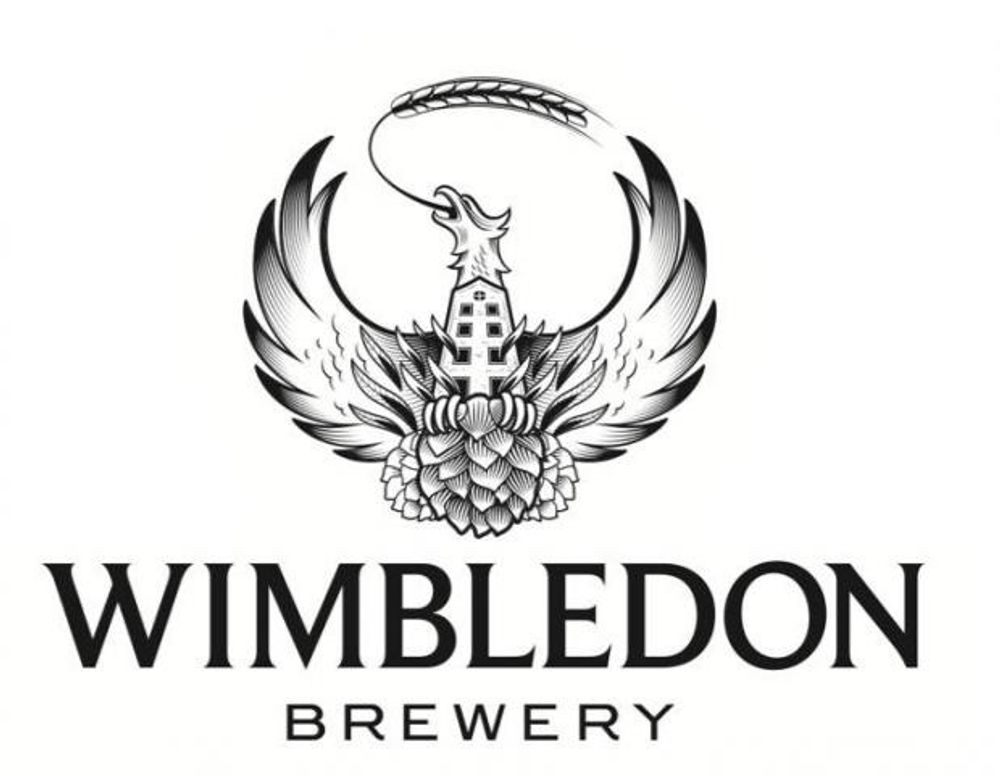
The rest of the senior management team come with quite a mixed bag of skills and experience.
Gordon’s previous career was spent working in the City and major financial institutions, whereas sales and marketing director, Richard Coltart, has come over from the pub co side of things working with operators including Front Page Pubs, Tup Inns and the Capital Pub Company as well as starting up three of his own pubs, including the award-winning Manor Arms in Streatham.
You sense just by spending a short amount of time with the three of them that this is really is a passion driven business.
Not that Gordon is a natural beer man. By his own admission he was not really a massive fan of craft beer before deciding to start up one of his own. But he is clearly a business man with an eye for how to make money. And knew the Wimbledon connection would be vital to it.
Whilst there was no current Wimbledon Brewery to spoil his plans he realised the area, not surprisingly, has a long, rich history of brewing, going back as far as the Middle Ages. There was even an original Wimbledon Brewery founded by a William Cook in 1832.
Conveniently enough the original brewery, which also included the tallest building in the town and is now home of Wimbledon fire station, had burnt down in 1889 presenting the entrepreneurial and quick thinking Gordon to immediately latch on to the idea of the new Wimbledon Brewery emerging, Phoenix-like out of the ashes. Which is exactly the imagery and identity that the new brewery has for its logo.
Wimbledon Brewery might share the same post code as the All England Tennis Club, but they are in different parts of the district. The brewery is actually part of a standard business park just off the ring round around Colliers Wood, which would be recognisable to any ITV Bill TV fans out there. It can even claim that the Merton Priory site was actually where the original brewers in the Middle Ages were located.
Local links
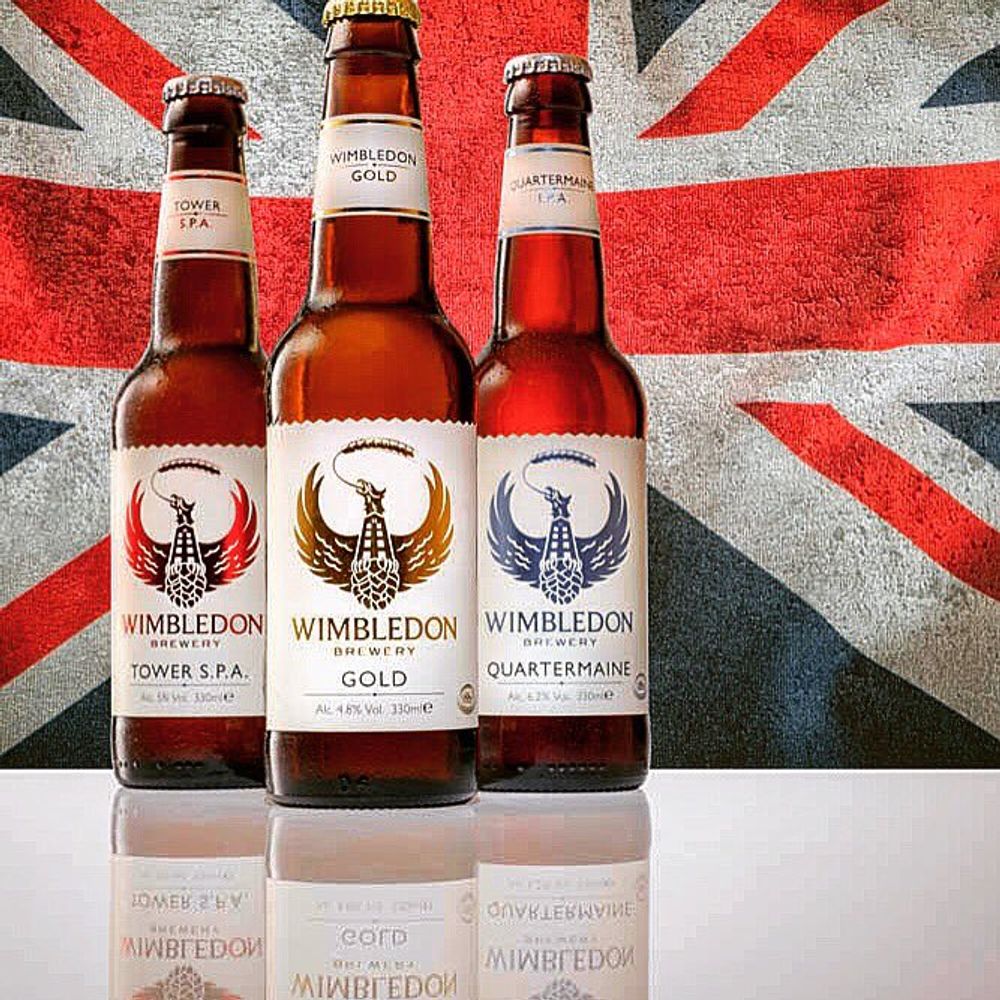
Pushing the image of Wimbledon has been crucial in building awareness both in the UK but definitely overseas
It is interesting to hear how important the branding element of the business has been from day one. Coming from a non-beer, but commercial background has made Gordon 100% focused on the need to maximise any publicity it can and if that means hanging on to the coat tails of such a colossal global brand as the Wimbledon tennis then so be it.
“We get enquiries from all over the world, from Canada, South Korea, China, thanks I’m sure to the tennis association,” he adds.
Gordon says that whilst the “reflected glory” from the tennis connection is nice, he’s also quick to stress it has got nothing to do with the beer. Instead he has chosen to put its money behind a much more appropriate, and affordable, local sporting institution, AFC Wimbledon. It makes a special edition 1889 beer – the first time association football was played on Wimbledon Common – for its clubhouse.
An association he hopes can grow and grow, like the team’s own progress up the Football League, particularly with plans to return the club to its original home at Plough Lane.
Making the beer
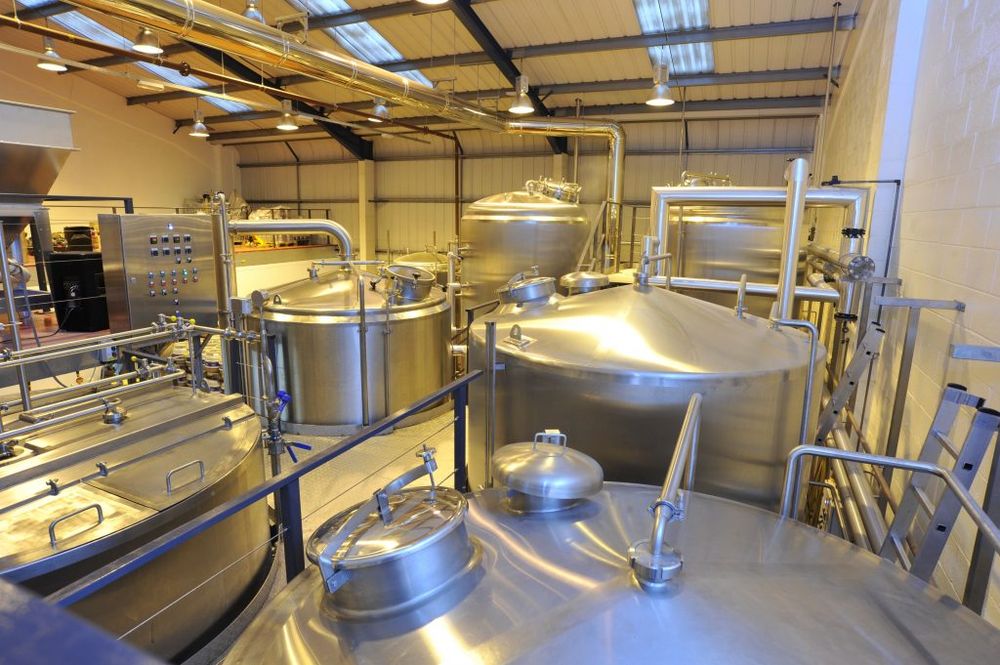
The purpose built Wimbledon Brewery has been made to exact specifications
So you’ve got a brewery, in an old Nissan car parts facility, a great name, historic logo, a respected master brewer, the only thing missing is working out what kind of beer you are going to make.
“We set out with the aim of not making a challenging beer. But a balanced beer,” says Gordon.
Coltart agrees: “We wanted it to be a well put together, confident beer that we could build our heritage story on. We wanted beers that could be well matched to food.”
A base, if you like, to add more ambitious beers and flavours to down the line. “It was important to have a solid foundation,” adds Gordon.
Designing the brewery
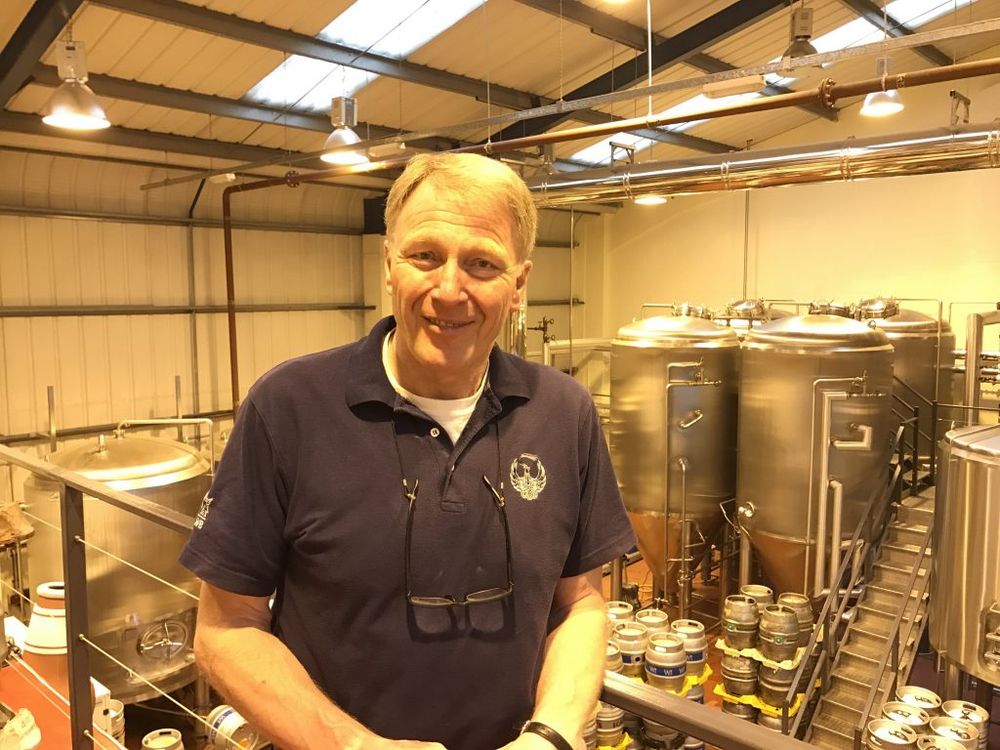
Master brewer Derek Prentice says he it has been like playing with a new toy building up the brewery
One of the big attractions for Prentice joining what was effectively a start-up operation, was that for the first time in his career he could build and design the brewery exactly how he wanted it. A real coup for someone used to working with major brewers.
“I had a nice new shiny toy to play with and it sounded like a great project to be involved with,” says Prentice. “Here it is also very much hands on brewing, it’s not just pressing buttons.”
The opportunity at the Wimbledon Brewery came at a good time for Prentice in that during his time at Fuller’s he had been working with smaller brewers on a consultancy basis and was able to see first hand the challenges and opportunities that start up businesses had.
His approach has been to use traditional brewing methods, but with the most modern equipment, that, vitally he says, has scaleability. One of the first pieces of equipment on his wish-list was a steam-based boiler to help achieve a much gentler boiling process with no risk of burning.
All the core beers are brewed using one of Prentice’s favourite barley varieties, Maris Otte. The brewery also uses its own strain of yeast to enhance the flavour and character of its beers. Prentice says his brewing approach has been to make beers that can easily make the switch from bottle to cask to keg.
“Little decisions like that have made a massive difference,” says Coltart.
Passing on knowledge
Working with such a brewing legend means he is also able to pass on his fantastic knowledge to the rest of the brewery team, says Gordon.
“The fact he has trained up 100s of apprentice brewers over the years will be one of his legacies,” he adds.
Prentice says it is part of his role that he loves. The chance to help the next generation grow in to the brewing industry. “It is the most exciting time to come in to brewing and there is so much room here to grow at the brewery.”
Building distribution
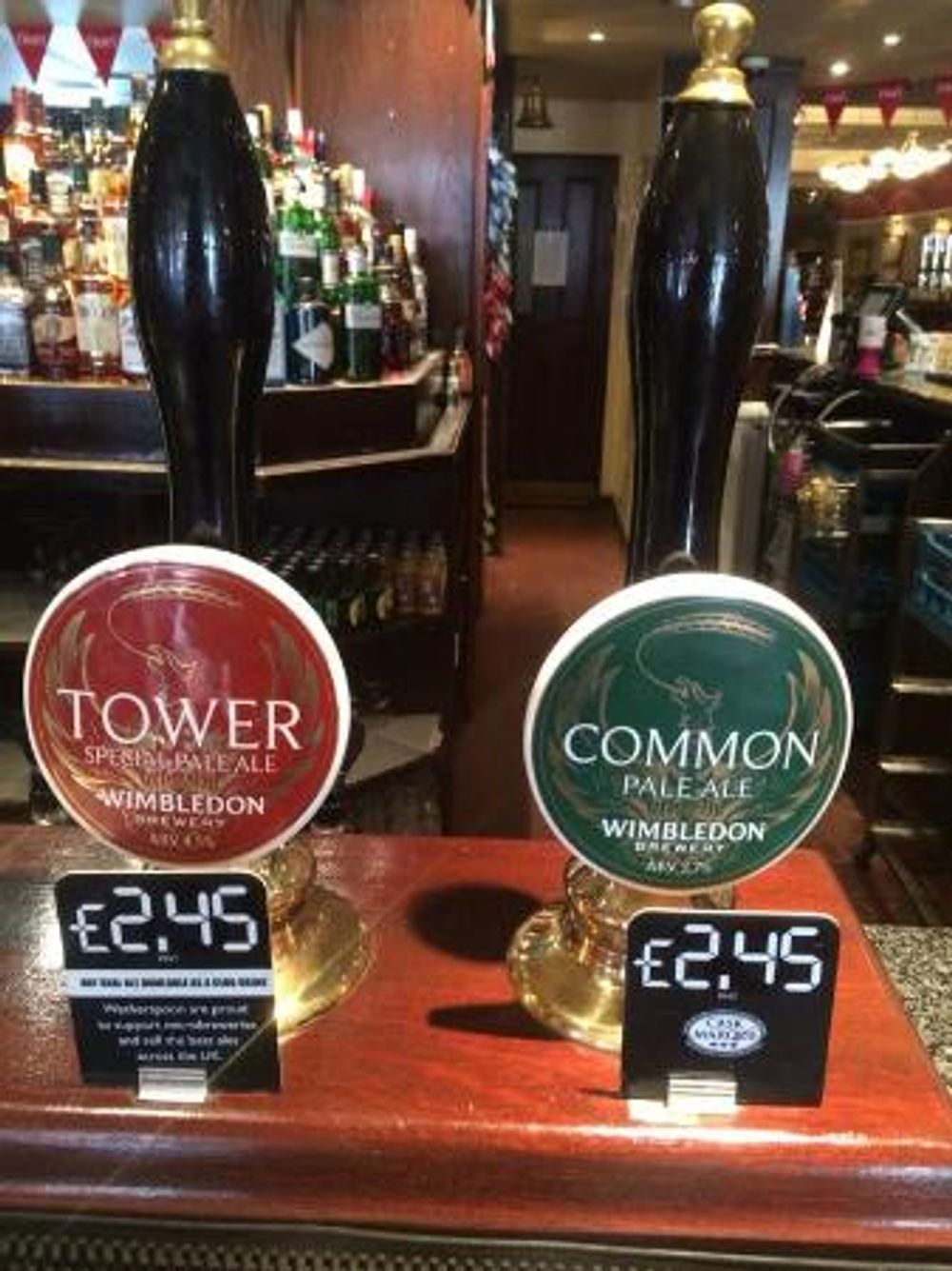
Distribution is always the most difficult part of the puzzle to get right, but to date the brewery had had good success in building a solid foundation in up to around 600 pubs, but has also worked hard at opening up premium and prestige accounts, partly playing on the Wimbledon name, but also the heritage and craftsmanship of the beer.
So you can now find Wimbledon Brewery beers in the RAC Club, Hurlingham’s, The Ivy, Langhams and Club class on Virgin Airlines.
It is also currently being listed in Majestic with its first real push in to specialist retailing and has been in 100 stores with Marks & Spencer.
Gordon says how long they remain on tap or are “rotated” is very much on a customer by customer basis. “Some will have you in 100 pubs say for three months at a time, others are more flexible and may only have you for a week or a month. It’s very much on an individual basis. Some have the beers on a more permanent basis.”
“But the good news is the demand is there. Consumers want to see local beers on sale,” he adds.
Growing the distribution too much beyond where it is now will also mean it producing and brewing a lot more beer. There is only so many brews it can physically do a week in its current site and then have the storage available to hold the beer.
It has been doing three brews a week, but has the demand now to push that to five brews, and over 40,000 pints of beer and is looking to expand the brewery in to the unit next door.
“We can then move to doing two brews a day,” says Prentice.
It is also building up quite a nice export business and has been able to take part in Government-backed trade mission trips to key markets like China. “Going overseas it is a different challenge. ou have to have a personality to break through, and I think we have that. The Wimbledon name gives us a head start,” says Gordon.
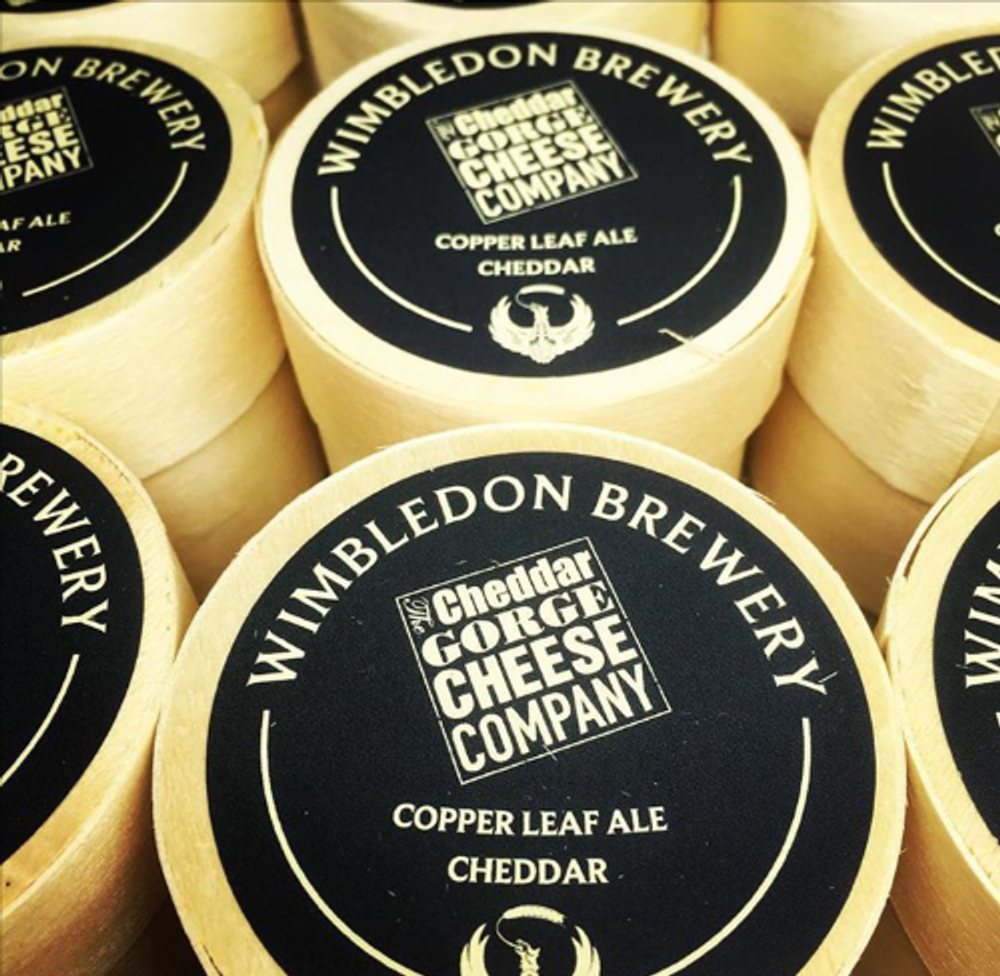
Beer and cheese made with Wimbledon Brewery’s Copper Leaf beer
The brewery has also started working with similar artisanal, and craft products from the food world where there is the chance to link up and create beer-based versions of local cheeses – the Cheddar Gorge Cheese Company – and pork pies. It is, for example, working with the Millers Bakery to create bread using a stain of its own brewing yeast.
“But it is tough business and it is different to stand out. Hopefully we are finding our way by building up our brand and creating an interest in what we are doing.”
The next few weeks with the world of tennis on its doorstep will do very nicely thankyou. New beers please.
Wimbledon Brewery: in a nutshell
- Business launched in 2014 and started making beer in June 2015.
- It it a 30 barrel brewery that can producer 8,640 pints per brew.
- Currently supplies between 500 to 600 pubs (not continuously).
Beers include
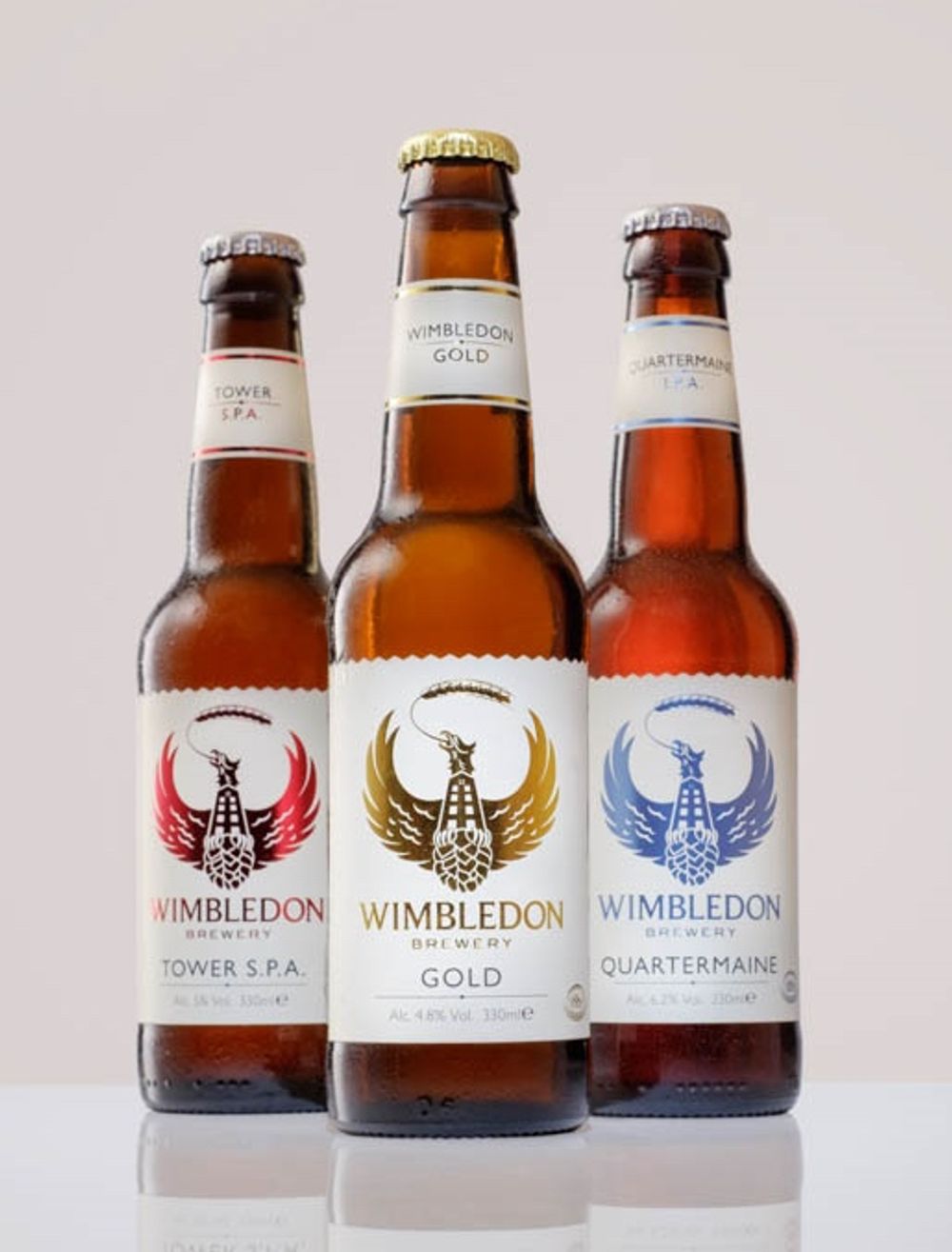
Cask
* Common Pale Ale: 3.7%
- Tower Special Pale Ale: 4.5%
- Quartermaine IPA: 5.8%
- Copper Leaf Ale: 4%
- SW19 Summer Ale: 4%
- Phoenix Smoked Porter: 4.8%
Keg
- Bravo American Pale Ale: 5.5%
- Gold Lager: 4.8%
- Copper Ale: 4.5%
Bottle and Can
- Gold Lager: 4.8%
- Quatermaine IPA: 6.2%
- Tower Pale Ale: 5%
- Bravo American Pale Ale: 5.5%
- Copper Ale: 4.5%
